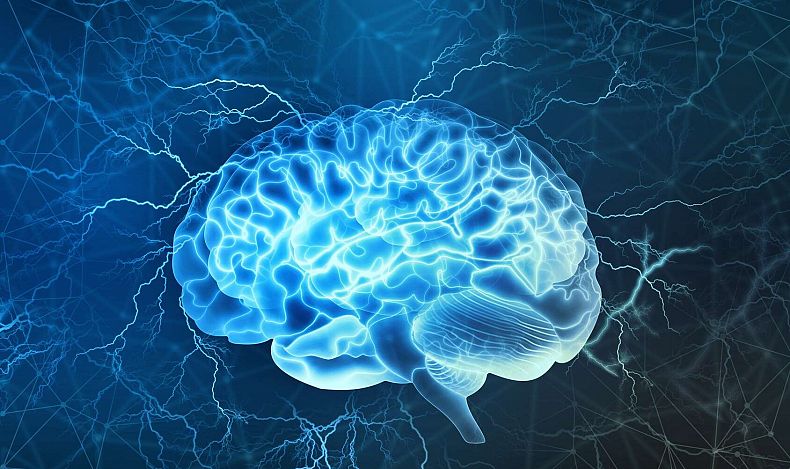Anthropologist Pascal Boyer explores the cognitive foundations of human social behaviour, avoiding both biological determinism and anthropological singularity.
* Lire en français. The English translation is provided by the editorial staff, who are solely responsible for any inaccuracies.
The major social theories formulated over the last few centuries have most often fluctuated between a kind of biologism, which tends to deduce all social phenomena from the physical or genetic dispositions of human beings, and an anthropological approach, which rejects this reduction and refers instead to the human spirit, emphasising its capacity for education and transmission. The anthropologist Pascal Boyer, research director at the CNRS and professor at Washington University in Saint-Louis in the United States, explores a third approach. It consists in examining the question of life in society in the light of recent work in the cognitive sciences.
His book La Fabrique de l'humanité is a paperback reprint of a book originally published in 2018, in which he sets out the results of his research into such fundamental questions as the origin of political domination, the differences between men and women, the reasons for human cooperation, the sources of morality and the meaning of religion.
Humans and mutual aid
The starting point for Boyer's thinking is an observation: humans cannot live in isolation, if only for the purposes of reproduction. This explains the family and extra-family groupings that guarantee the survival of their members.
The author also stresses the importance of mutual aid in the social life of individuals: this social support is a factor of cooperation that has favoured hunting, trade and defence, as well as the education of children. These findings derive from research carried out by anthropologists, ethnologists and sociologists, highlighting the constant construction of structures that form customs, cultural affiliations and, ultimately, a social ethos.
Boyer shows that affects themselves are shaped by inter-individual relationships: hatred, envy, love, pity or even glory are all affective forms taken by the confrontation and relationship with an 'other', whom we recognise at the same time as a fellow human being, subject to common rights and to similar codes.
All these examples help us to understand that the structures of human behaviour are formed from the information that each individual exchanges with his or her environment and fellow human beings, and in so doing underline the crucial role of learning in their emergence.
The contribution of cognitive science
This is where the cognitive sciences come in. Learning is made possible and sustained by certain mental mechanisms. The author shows that the human mind comprises a wide variety of mechanisms for processing information flows and making compositions capable, for example, of analysing sounds and sentences, distinguishing between friends and enemies or classifying animals.
But these are acquired categories and cognitive models perpetuated from one generation to the next. Boyer also notes that for alliances to emerge between individuals, they must have specific mental representations that enable them to imagine a shared world.
Such categories prevent the author from reducing human behaviour to either biological determinism or social construction alone: mental structures develop, refine and consolidate over the course of historical and social evolution, so that cognitive dispositions are themselves produced by learning. In the end, the human mind appears to be a remarkable instrument for processing information, enriched by every interaction with the social world around it.
The explanatory model suggested by Boyer therefore distances itself from both biologism and classical anthropology. It requires us to revise our conception of human behaviour in depth and to identify, for each social or cultural event, the evolution and cognitive mutations that made it possible. This systematic study of cognitive development leads Boyer to conclude that evolution has produced specialised abilities that guide our social relations and the formation of our culture.
Some salient conclusions
As a result of this innovative approach, the book includes a number of epistemological considerations. Boyer also takes the time to outline the historical debates that have confronted the various conceptions of human societies (either on the basis of their rupture with other animal behaviours, or on the basis of their conformity with human genetic components) and to situate his own concepts in relation to them.
The notion of information, in particular, is the subject of important clarifications, which place it in the global perspective of the cognitive sciences. Similarly, the concept of 'human' is specified, insofar as it refers neither to a strict rationalist conception that sees humans as pure consciousness, master of all their behaviour, nor to the opposite conception, which sees them as robots or intelligent machines.
These nuances enable the author to produce original analyses of particular social phenomena. Boyer's analysis of violence between individuals or between social groups is a good case in point: far from relating violent behaviour to passions or primary, unthinking instincts, as is commonly done, Boyer shows in greater detail that it can be interpreted as the result of complex mental 'calculations'. To understand the expression of violence - and especially social violence - as something other than an outburst of uncontrollable rage, we need to study the markers of identification (with a particular camp) and the social processes that reinforce or incite violence.
Taken together, these analyses, which cover a wide range of subjects, allow the reader to take a fresh look at the most common social behaviours, and to question, beyond certain stereotypes, the more fundamental structures that make them possible within the human mind.

